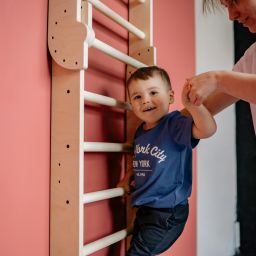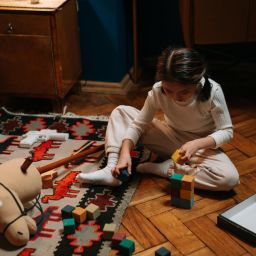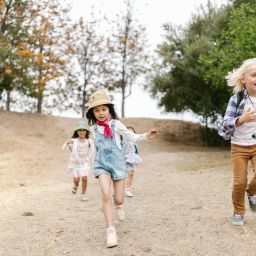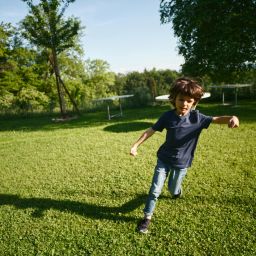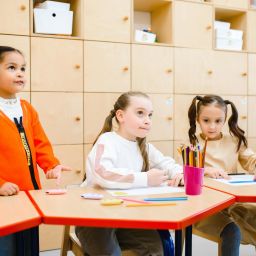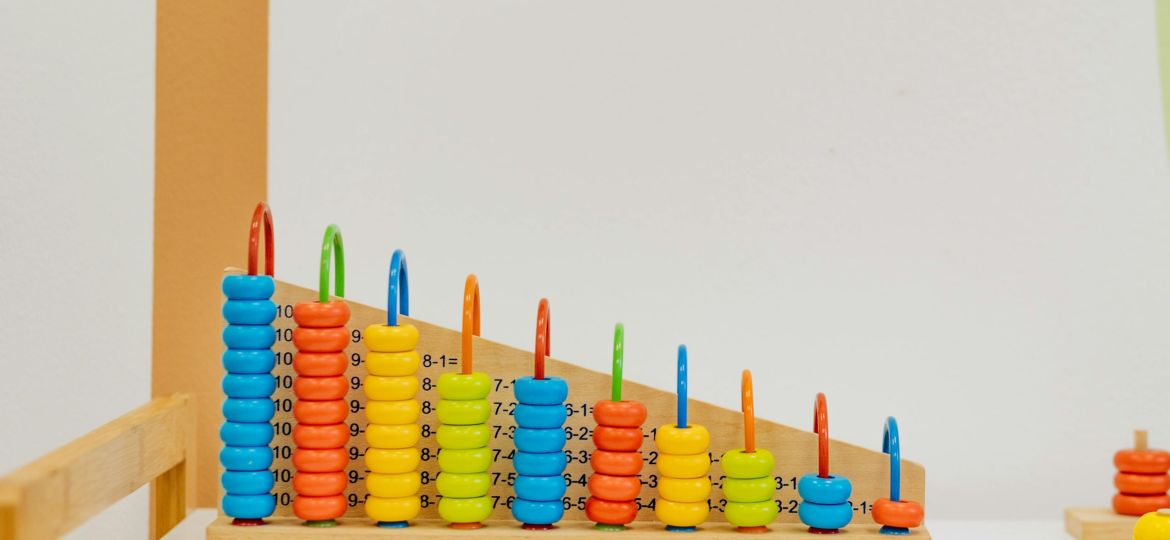
FH Summary: Summer learning loss disproportionately affects lower-income children, leading to significant academic regressions. By establishing good habits and structured activities, parents can help mitigate these effects and create an upward spiral of academic and personal growth even during the non-structured summer break. First Habits provides valuable resources and strategies to support parents in maintaining their children’s educational progress during the summer.
We are right in the middle of summer break! Summer is often seen as a time for children to relax and enjoy a break from the rigorous demands of the school year. However, research has shown that this period can also lead to significant learning losses, especially for lower-income children.1 This post explores the reasons behind this phenomenon and provides actionable strategies to help parents mitigate the effects of summer learning loss.
Understanding Summer Learning Loss
According to the research, most if not all students plateau or slightly regress during the summer months when their academic curriculum is put on pause. However, lower-income children tend to experience more significant learning regressions during the summer compared to their higher-income peers. This discrepancy is attributed to various factors, including limited access to educational resources, structured activities, and enriching experiences. As a result, these children often return to school in the fall having lost critical academic skills, which can compound over the years and widen the achievement gap.
Key Findings
The study revealed that, on average, students lose about one month of learning over the summer, with declines being sharper in math than in reading. However, the loss is not uniform; children from low-income families are disproportionately affected. This phenomenon, known as the “summer slide,” contributes significantly to the achievement gap observed between students from different socio-economic backgrounds.
Causes of the Summer Slide
Several factors contribute to the summer slide, particularly among lower-income children:
§ Limited Access to Educational Resources: Higher-income families are more likely to afford books, educational toys, and technology that can keep children engaged in learning activities during the summer.
§ Fewer Structured Activities: Lower-income children often have fewer opportunities to participate in structured activities, such as summer camps, sports leagues, or academic programs, which can provide both learning and social development opportunities.
§ Enrichment Opportunities: Higher-income families might take vacations to educational destinations, visit museums, or engage in cultural activities that enrich a child’s learning experience. These opportunities are less accessible to lower-income families.
Long-Term Impact
The effects of summer learning loss are cumulative, meaning that the achievement gap widens over time. By the time children reach high school, those from lower-income families may be as much as three years behind their higher-income peers academically. This gap can have long-term consequences, affecting college admissions and future job prospects.
Strategies to Combat Summer Learning Loss
Regardless of socio-economic status, summer learning loss should be a key focus. To combat this dynamic, parents can implement several research-backed strategies:
Structured Learning Activities
Incorporating daily reading and math exercises into your child’s routine can have a significant impact. Studies have shown that even 15-20 minutes of reading each day can help maintain and improve literacy skills. Here are some ideas:
§ Reading Time: Encourage your child to read daily. This can include books, magazines, or even online articles. The key is to make reading a habit, as it significantly enhances vocabulary, comprehension, and critical thinking skills.
§ Math Practice: Simple math games and puzzles can make learning fun. There are numerous online resources and apps designed to make math engaging and interactive.
Educational Programs and Camps
Enrolling your child in summer camps or programs that focus on academic enrichment provides structured learning environments and access to resources that might not be available at home. Look for programs that offer:
§ Science and Technology: STEM camps that focus on science, technology, engineering, and math can spark your child’s interest in these fields.
§ Arts and Humanities: Programs that include arts, history, and literature can provide a well-rounded educational experience.
§ Sports and Physical Activity: Physical activity is essential for overall health and can improve cognitive function. Sports camps can help children stay active and develop teamwork skills.
Library Visits
Regular trips to the library can foster a love of reading and provide access to a wide range of educational materials. Many libraries also offer summer reading programs and other activities designed to keep children engaged. Here are some tips:
§ Join a Reading Program: Many libraries have summer reading challenges with prizes and events that encourage children to read more.
§ Explore Different Genres: Encourage your child to explore different genres of books to find what interests them the most.
§ Attend Library Events: Libraries often host events such as storytime, craft sessions, and educational workshops that can be both fun and informative.
Interactive Learning
Using educational apps and online resources to make learning fun and interactive can keep children engaged. Websites like Khan Academy and PBS Kids offer a wealth of free educational content tailored to various age groups and subjects. Here are some recommended resources:
§ Khan Academy: Offers free courses in a wide range of subjects, from math and science to history and art.
§ PBS Kids: Provides educational games and videos that are both entertaining and informative.
§ Duolingo: A fun and interactive app for learning new languages.
The Upward Spiral of Good Habits
Developing good habits is crucial in creating an upward spiral in a child’s life. Consistent routines, engaging educational activities, and positive reinforcement can significantly impact a child’s academic and personal growth. Conversely, the absence of these habits can lead to a negative spiral, where unstructured time and lack of stimulation result in lost opportunities for development.
The Power of Routine
Children thrive on routine. Establishing a consistent daily schedule during the summer can help maintain a sense of normalcy and structure. This can include setting aside specific times for reading, practicing math, and engaging in creative activities. Routines help children understand what is expected of them and provide a framework within which they can operate efficiently.
Compounding Childhood Habits
The concept of compounding applies not only to finances but also to habits. Small, consistent actions taken over time can lead to significant improvements in a child’s development. For instance, regular practice of math problems can improve mathematical skills, just as daily reading can enhance literacy.
A short story to illustrate this involves a child named Sam, who struggled with reading. Over one summer, Sam’s parents dedicated 20 minutes each day to reading together. By the end of the summer, not only had Sam’s reading skills improved, but he also developed a love for books, which continued to benefit him academically in the years that followed.
Additional Tips to Avoid Summer Learning Loss
Encourage Lifelong Learning
Make learning a continuous part of your child’s life, not just something that happens during the school year. Here are some ways to foster a love of learning:
§ Follow Their Interests: Allow your child to explore topics that interest them, even if they are not part of the school curriculum. This can help them develop a passion for learning.
§ Use Everyday Opportunities: Turn everyday activities into learning experiences. Cooking can teach math and science, while shopping can improve budgeting and planning skills.
§ Encourage Curiosity: Answer your child’s questions and encourage them to find answers on their own. This can develop critical thinking and research skills.
Set Goals and Track Progress
Setting goals can give children a sense of purpose and motivation. Help your child set realistic goals for the summer and track their progress. This can include:
§ Academic Goals: These can be related to reading, math, or any other subject your child wants to improve in.
§ Personal Development Goals: These can include learning a new skill, such as playing an instrument, or developing a new hobby.
§ Physical Activity Goals: Encourage your child to stay active by setting goals related to physical fitness, such as running a certain distance or mastering a new sport.
Maintain Social Connections
Social interactions are crucial for a child’s development. During the summer, it’s important to maintain social connections through:
§ Playdates and Group Activities: Organize playdates and group activities with peers to help your child stay socially engaged.
§ Community Programs: Participate in community programs and events that offer opportunities for social interaction and learning.
§ Virtual Connections: If in-person interactions are not possible, use technology to stay connected with friends and family through video calls and online games.
Conclusion
Summer learning loss is a real and pressing issue, particularly for lower-income children. However, by developing and maintaining good habits, parents can help their children overcome this challenge and create an upward spiral of academic and personal growth. First Habits is dedicated to providing resources and strategies to support parents in this endeavor. For more information and tips on instilling important habits in your children, visit the blog section of our website and sign up for our weekly newsletter.
By implementing these strategies and fostering an environment of high expectations and continuous learning, parents can ensure that their children not only retain their academic skills over the summer but also build a strong foundation for future success.
References:
1 Alexander KL, et al. Summer learning and its implications: insights from the Beginning School Study. New Dir Youth Dev. 2007 Summer


